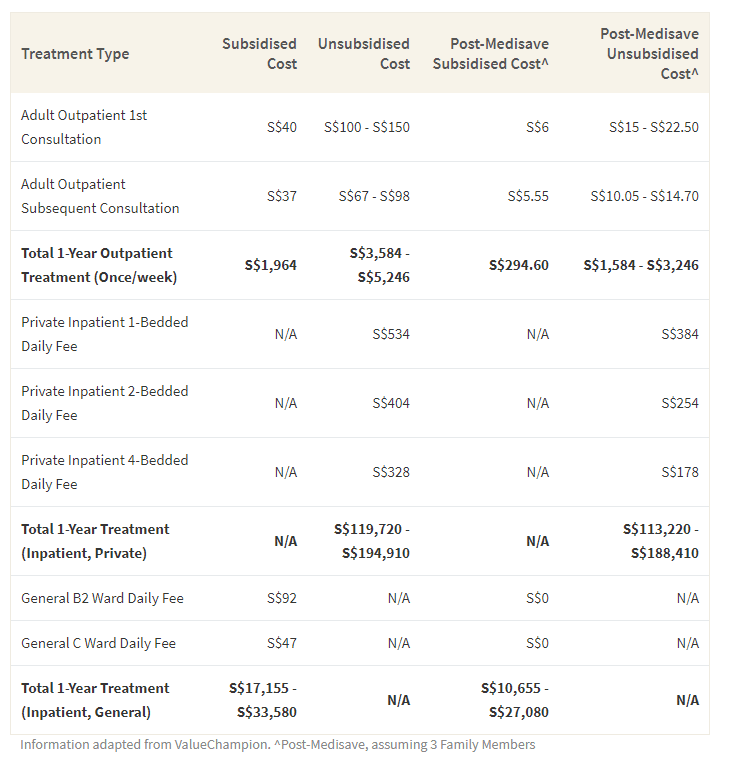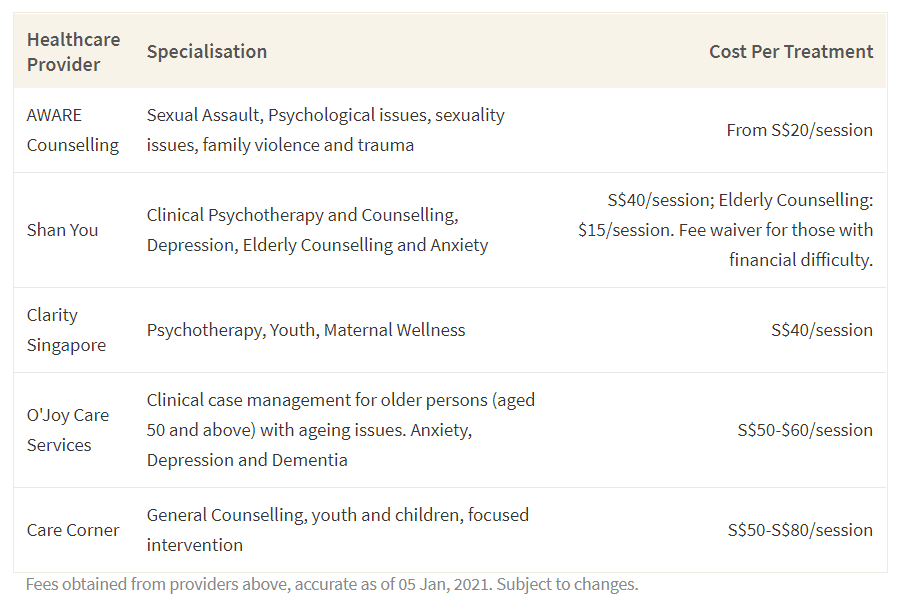What Are the Best Ways To Reduce Mental Healthcare Costs?
About 1 in 7 Singapore residents has experienced a mental health condition in their lifetime – and this statistic is expected to rise, given the multiple challenges the still-ravaging coronavirus has brought about. Despite the prevalence of mental health conditions in the country, though, it appears that 78.4% of Singaporeans who experienced a mental illness in the past year failed to seek treatment. While the reason behind Singaporeans' failure to seek proper help may primarily be due to social stigma, another undeniable contributing factor is the potential financial burden. For instance, the total cost of outpatient treatment for a year can range anywhere between S$1,964 to S$5,246, by no means a small sum for most Singaporeans. Thankfully, there are several ways to bring this cost down.
Use Medisave To Pay For Psychiatric Treatment
The Singapore government allows the use of Medisave to help offset the costs of psychiatric treatment. For inpatient psychiatric treatment, this is subject to a limit of S$150 per day and a maximum of S$5,000 a year. However, for outpatient treatment under the Chronic Disease Management Program, you will need to pay a 15% co-payment for treatments of schizophrenia, major depression, bipolar disorder, anxiety, and dementia. Also, note that outpatient claim amounts are subject to a yearly S$500 limit. Although, patients aged 60 and above may withdraw another S$200 a year under the Flexi-Medisave scheme, which brings the total to S$700.

If you don't have enough Medisave funds to cover the cost of treatment, you can use the Medisave of your immediate family members (i.e. spouse, children, parents, and grandparents who are Singaporean citizens or PRs), up to S$500 per year per account. Although you could use a maximum of 10 accounts, which provides an additional S$5,000 'grant' yearly, the small family nucleus in Singapore indicates that a reasonable estimate would be an additional S$1,500 'grant' from the use of 3 family members' Medisave.
Seek Out More Affordable Treatment Options
Despite the available Medisave grants and subsidies, seeking psychiatric treatment can still be an expensive affair. To further ease your financial burden, you could seek out more affordable treatment options in Singapore. AWARE Counseling, for instance, only charges 1% of your monthly salary. Another option is Shan You, which waives off counselling fees for those with financial difficulties. In addition to the service providers listed, another viable alternative is Social Service Organisations, like Source: WINGS Counselling Centre, which offers subsidised services. These organisations typically do a means test to determine the treatment fees you have to pay. Here's a bonus tip: you can also get a referral letter from a polyclinic, which entitles you to subsidised rates at treatment centres.

Don’t Be Afraid to Ask for Help in the Workplace
Research indicates that individuals with mental health issues are more likely to become unemployed. Imaginably, losing your job will only compound your financial stress, especially if you're already struggling with inpatient/ outpatient treatment payments. To decrease the likelihood of losing your job (and boost your work productivity), don't shy away from tapping into your company's Employee Assistance Program–which is part of your welfare benefit. This gives you access to confidential, individual counselling sessions and mental health workshops you can claim for, which means that you don't have to fork out additional money for professional counselling services.
Where possible, initiate a conversation with your manager about Flexi-work arrangements. This is especially if medications you take to manage your condition makes it challenging for you to work regular working hours.
Buy Insurance Plans That Cover Psychiatric Treatment
Many insurers are now starting to recognise the growing awareness of mental health conditions in Singapore–and offering coverage. Do comb through the fine print of available health insurance plans to ensure you’re adequately protected. Meanwhile, do make an effort to maintain social connections (especially during this pandemic) with your friends and family members; research consistently shows that relationships offer many mental health benefits, including improved self-worth and confidence, increased feelings of belonging and happiness, and reduced levels of stress.
